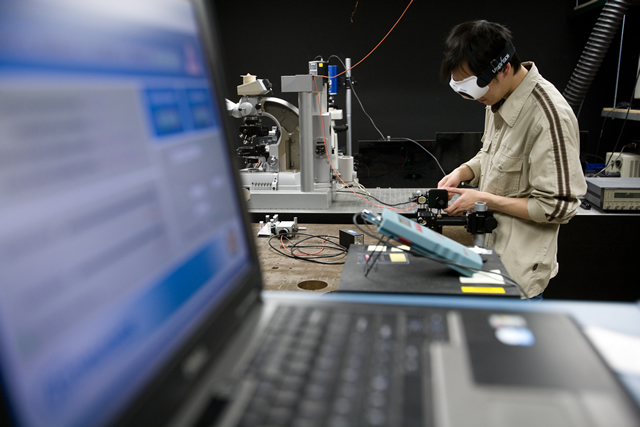
Electrical & Computer Engineering Faculty Publications
Document Type
Article
Publication Date
6-14-2006
Abstract
The critical features of the load balancing problem are the delayed receipt of information and transferred load. Load distribution and task processing contend for the same resources on each computational element. This paper documents experimental results using a previously reported deterministic dynamic nonlinear system for load balancing in a cluster of computer nodes used for parallel computations in the presence of time delays and resource constraints. The model accounts for the trade-off between using processor resources to process tasks and the advantage of distributing the load evenly between the nodes to reduce overall processing time. The control law is implemented as a distributed closed-loop controller to balance the load at each node using not only local estimates of the queue sizes of other nodes, but also estimates of the number of tasks in transit to each node. Experimental results using a parallel DNA database show the superiority of using the controller based on the anticipated work loads to a controller based on local work loads.
Publisher
IEEE
Publication Title
2006 American Control Conference
ISSN
1-4244-0209-3
First Page
3124
Last Page
3129
DOI
10.1109/ACC.2006.1657197
Language (ISO)
English
Sponsorship
IEEE
Keywords
Concurrent computing, Delay effects, Distributed computing
Recommended Citation
Abdallah, Chaouki T.; J. Douglas Birdwell; Zhong Tang; John Chiasson; and Majeed M. Hayat. "Resource-constrained load balancing controller for a parallel database." 2006 American Control Conference (2006): 3124-3129. doi:10.1109/ACC.2006.1657197.
